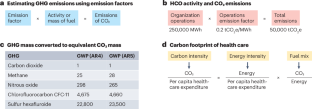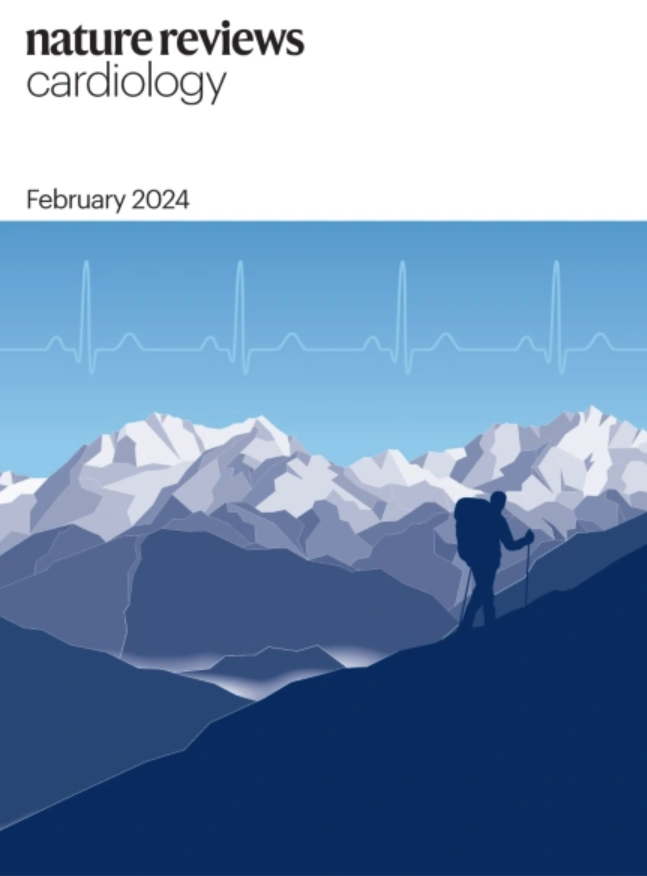Environmental sustainability in cardiovascular practice: current challenges and future directions
IF 41.7
1区 医学
Q1 CARDIAC & CARDIOVASCULAR SYSTEMS
引用次数: 0
Abstract
Cardiovascular disease is the leading cause of morbidity and mortality worldwide, with a substantial amount of health-care resources targeted towards its diagnosis and management. Environmental sustainability in cardiovascular care can have an important role in reducing greenhouse gas emissions and pollution and could be beneficial for improving health metrics and societal well-being and minimizing the cost of health care. In this Review, we discuss the motivations and frameworks for sustainable cardiovascular care with an emphasis on the reduction of the climate-related and environmental effects of cardiovascular care. We also provide an overview of greenhouse gas emissions related to the provision of health care, including their measurement and quantification, carbon accounting, carbon disclosures and climate effects. The principles of life-cycle assessment, waste prevention and circular economics in health care are discussed, and the emissions associated with various sectors of cardiovascular care as well as the rationale for prevention as a powerful approach to reduce these emissions are presented. Finally, we highlight the challenges in environmental sustainability and future directions as applicable to cardiovascular practice. In this Review, Rajagopalan and colleagues summarize the sources of greenhouse gas emissions related to the provision of cardiovascular health care and suggest strategies to reduce carbon emissions and costs, including the use of renewable energy, waste reduction and disease prevention.


心血管实践中的环境可持续性:当前挑战与未来方向
心血管疾病是全球发病率和死亡率的主要原因,大量的医疗资源都用于诊断和治疗。心血管病治疗中的环境可持续性可在减少温室气体排放和污染方面发挥重要作用,并有利于改善健康指标和社会福祉,最大限度地降低医疗成本。在本综述中,我们将讨论可持续心血管医疗的动机和框架,重点是减少心血管医疗对气候和环境的影响。我们还概述了与医疗服务相关的温室气体排放,包括其测量和量化、碳核算、碳披露和气候效应。我们还讨论了医疗保健中的生命周期评估、废物预防和循环经济学原则,并介绍了与心血管医疗保健各部门相关的排放量,以及将预防作为减少这些排放量的有效方法的理由。最后,我们强调了环境可持续性方面的挑战以及适用于心血管领域的未来发展方向。
本文章由计算机程序翻译,如有差异,请以英文原文为准。
求助全文
约1分钟内获得全文
求助全文
来源期刊

Nature Reviews Cardiology
医学-心血管系统
CiteScore
53.10
自引率
0.60%
发文量
143
审稿时长
6-12 weeks
期刊介绍:
Nature Reviews Cardiology aims to be the go-to source for reviews and commentaries in the scientific and clinical communities it serves. Focused on providing authoritative and accessible articles enriched with clear figures and tables, the journal strives to offer unparalleled service to authors, referees, and readers, maximizing the usefulness and impact of each publication. It covers a broad range of content types, including Research Highlights, Comments, News & Views, Reviews, Consensus Statements, and Perspectives, catering to practising cardiologists and cardiovascular research scientists. Authored by renowned clinicians, academics, and researchers, the content targets readers in the biological and medical sciences, ensuring accessibility across various disciplines. In-depth Reviews offer up-to-date information, while Consensus Statements provide evidence-based recommendations. Perspectives and News & Views present topical discussions and opinions, and the Research Highlights section filters primary research from cardiovascular and general medical journals. As part of the Nature Reviews portfolio, Nature Reviews Cardiology maintains high standards and a wide reach.
 求助内容:
求助内容: 应助结果提醒方式:
应助结果提醒方式:


